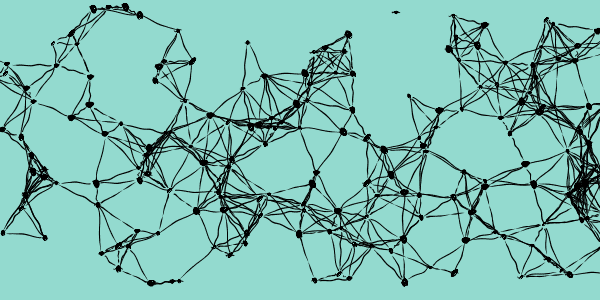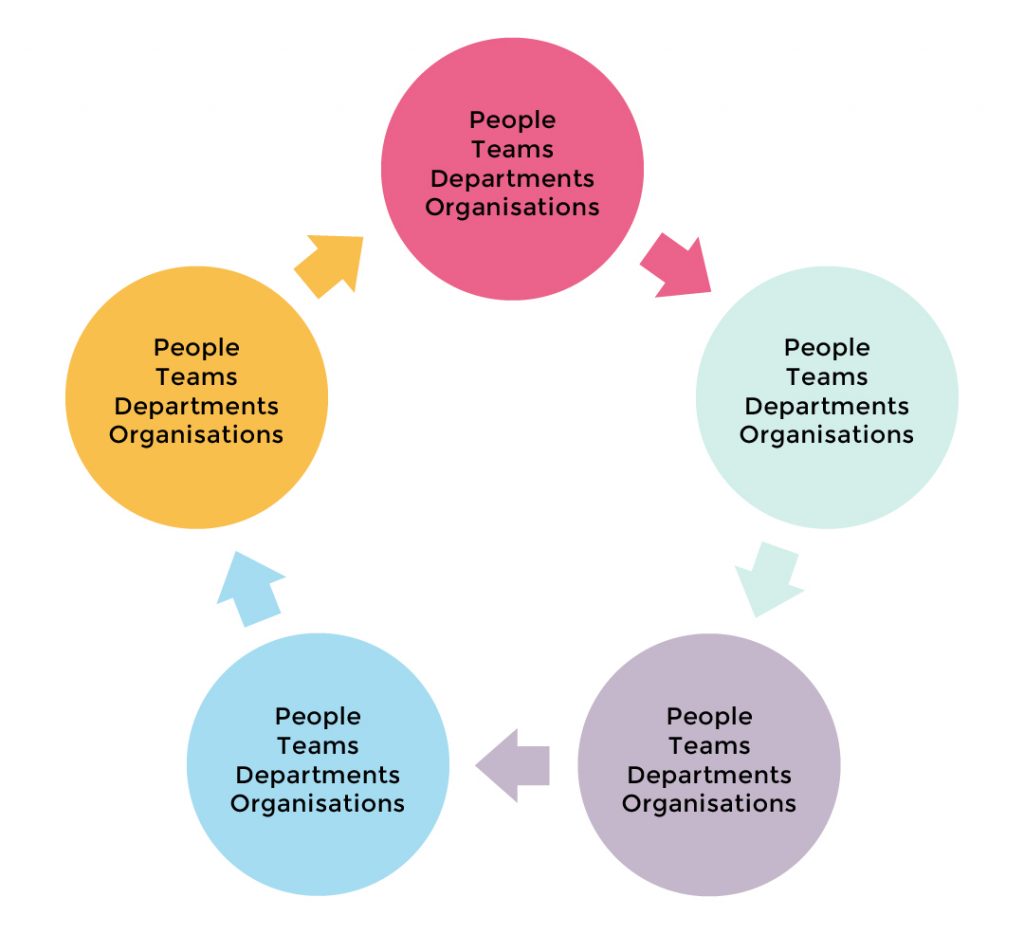Complexity isn’t complicated

The term complexity is being heard more and more around the corridors of organisations. In some sectors it has become new terminology that is used to mean a variety of things, and at the same time nothing at all.
“We work in complex systems” “I am working on some complex issues” However, the term is often misunderstood and misused. It is often substituted to mean that a situation is complicated. Why is it important to identify the difference?
When terminology is incorrectly used and goes unchecked, it creates confusion that in turn has an impact on our understanding of the very thing we are talking about (in this case on the systems we work in). When people talk about complexity and complex systems, often they are really expressing how complicated they find their working environment. In turn this usually results in people failing to explore simple solutions to the situations they face, (complicated problems usually demand complicated solutions). In simple terms, complexity, as defined by complexity theory, is the amount of parts (agents) there are in a system. These parts could be individual people, teams, departments, or whole organisations. The more parts there are, the more complex the system. For something to be complicated it not only needs to ‘involve a lot of different parts’ but these parts need to interact ‘in a way that is difficult to understand’ (Cambridge Dictionary).

By distinguishing these two distinctly different terms we can understand problems, teams and whole organisations in a new way. So, how is it possible to take something that exists in a complex system and stop it being complicated? The answer lies in the latter part of the dictionary definition. In order to reduce the degree to which a system is complicated requires an understanding of that system and how the parts relate to each other. A car is made up of lots of different parts. If the car breaks down most people would experience this as a complicated problem. There are lots of parts and they are difficult to understand. However, if you take your car to a mechanic they will not experience this as complicated because they know how the car works, they understand it. The car is still a complex system by definition (there are lots of parts in my car). The mechanic’s knowledge of how the parts work together has come from years of experience, watching and understanding mechanics. A diagnosis of the problem comes from knowing what is being observed and what needs to be changed to make the system work optimally.
In order to gain this kind of understand at the level of human interaction, (there is nearly always human interaction in workplace systems), two things need to be present. Firstly, we need knowledge about the system, (how does it work; how do the parts fit together), and we need meaningful relationships, (do we know the people who are working in the system with us).
System Knowledge:
Most of our understanding of how organisations function comes from a mechanical systems mindset of the world:
- We attribute importance and value to some parts of the system rather than seeing all as important and valuable
- We think in ways that assume predictability (if I do ‘this’, ‘that’ will happen)
- We understand organisations as hierarchical structures (just refer to your organisational chart)
Using complex systems to understand these notions changes our perspective:
- All parts are important and have value
- Things are often unpredictable (if I do ‘this’, I need to observe the impact it has before making the next move)
- Systems are built from the relationships that we create with others
Meaningful Relationships:
This means really knowing people and building meaningful relationships with them. In a workplace context this doesn’t mean that everyone we work with will be our best friend, but that relationships will enable us to understand what is important to others, to find common ground in our values, to have each other’s backs when things are difficult. This means investing in these relationships and giving time to developing them.
The irony is that we live in a moment of history in which individualistic thinking is fostered at a time when organisations are realising there is a need to work collaboratively across boundaries, both internally and externally. As individuals we do this by looking after ourselves at the expense of others; in organisations we retreat back into our silos when things get difficult and point the finger at others rather that attempting to understand how we all contribute to workplace problems. Instead of retreating back into our own comfortable world to make sure we are ok, we need to understand that the only way we can be ok is to make sure others are ok. The world of complex systems has something important to contribute to this discussion. It suggests that complex systems work at their best when we invest time in understanding the systems we work in (are we able to use our understanding and knowledge of the people we work and interact with to understand the systems we work in better), and we invest in meaningful relationships. For many, this will feel counter-intuitive, especially when the systems we are in are under pressure (systems under pressure tend to migrate towards silos and hierarchies with no evidence they actually reduce the pressure and plenty of anecdotal evidence that they usually increase it). But, the truth is that as humans we are only at our best when we are interdependent not independent. Humans don’t function well when we attempt to do things on our own. We are designed for relationship and connection.
No man is an island entire of itself; every man is a piece of the continent, a part of the main; if a clod be washed away by the sea, Europe is the less, as well as if a promontory were, as well as any manner of thy friends or of thine own were; any man’s death diminishes me, because I am involved in mankind. And therefore never send to know for whom the bell tolls; it tolls for thee.
John Donne
